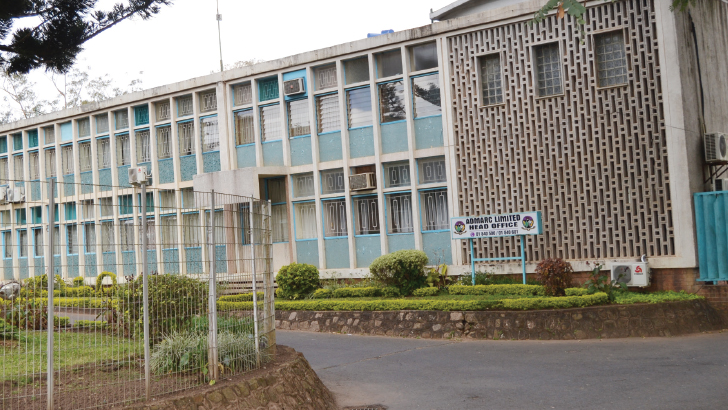Admarc upbeat on settling k40bn loans
State produce trader Agricultural Development and Marketing Corporation (Admarc) says it will repay its K40 billion commercial bank loans through the sale of various crops.
Responding to a question on the state of the parastatal’s debt during a news conference in Lilongwe on Monday, Admarc general manager Rhino Chiphiko said based on its turnaround strategy, the parastatal will in the long-run begin to post profits.

Admarc has been relying on government bailouts to settle its debts with commercial banks.
But Chiphiko said the K40 billion loans have a staggered repayment period of three to five years.
He said: “The loans that we have are in the region of about K40 billion. These loans will be disposed of once we sell our commercial crops.
“Admarc is not just about maize only, we sell cotton, beans, groundnuts and soya beans, among others. We strongly believe that with the profits realised from the sale of these cash crops, most of which are export crops, we should be able to comfortably settle the loans.”
Chiphiko said cotton is on high demand in South Africa and they are also ready to supply pigeon peas to India where the Malawi Government secured a 50 000 metric tonnes export deal.
Minister of Agriculture Lobin Lowe said government is fully supporting Admarc to become a vibrant institution that responds to market needs for the local and export markets.
He said government is not in any way interfering with Admarc operations, but was working to support it to be on its feet and financially independent.
Agriculture policy analyst Tamani Nkhono-Mvula said in an interview that recapitalisation of Admarc is just one of the answers to promote its efficiency.
He, however, bemoaned government’s interference in the management of Admarc as one of the contributing factors to the underperformance.
Nkhono-Mvula said there is need to create a conducive environment for the institution to thrive.
“The Admarc Act gives powers to the minister to make decisions and such powers are abused,” he said, observing that there is need to reduce government shareholding in the parastatal.
“You can give them all the money in the world, but if management decisions are influenced by the government, putting resources in Admarc won’t achieve anything,” said Nkhono-Mvula.
Admarc was created in 1971 as a statutory corporation mandated to, among others, market agricultural produce and inputs, facilitate the development of the smallholder agricultural subsector and also attend to social obligations on behalf of government.
Until 1987, Admarc was the sole buyer of smallholder produce, but in 2004, it was incorporated as a limited liability company with government owning 99 percent of the shares.
This, experts say, needs to be reviewed to ensure the government shareholding is reduced by relinquishing some shares to willing public investors.





